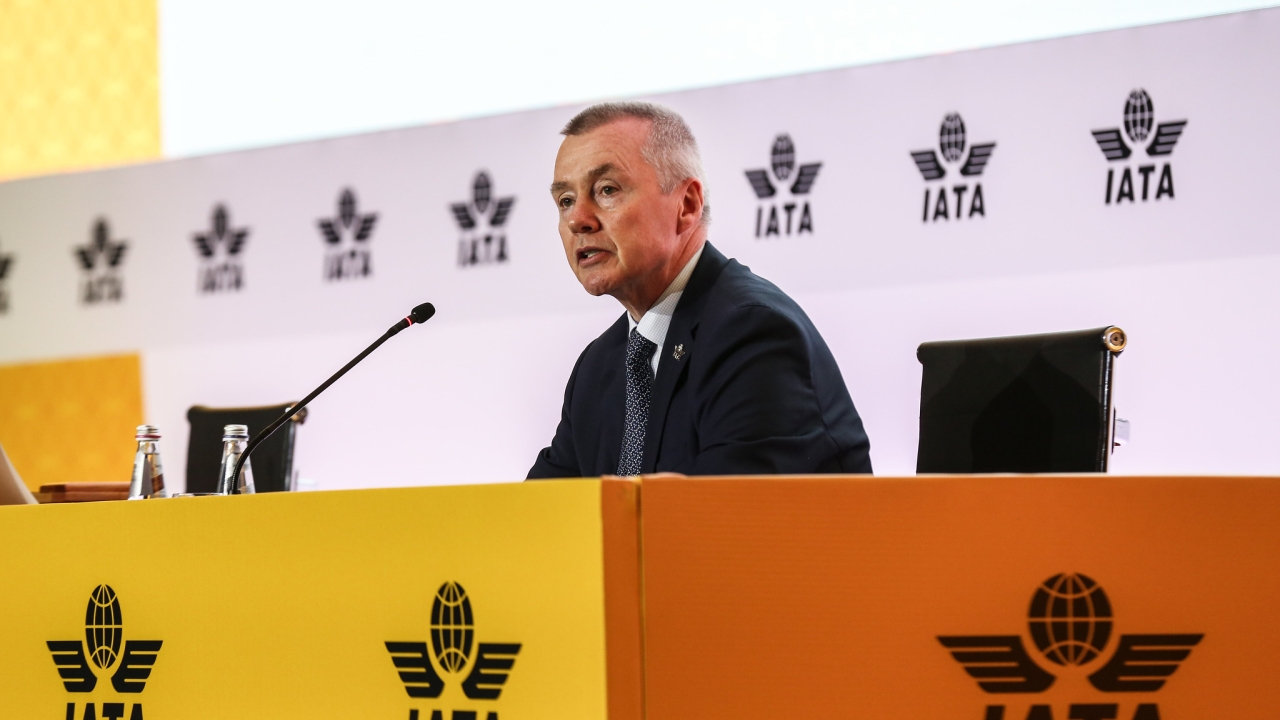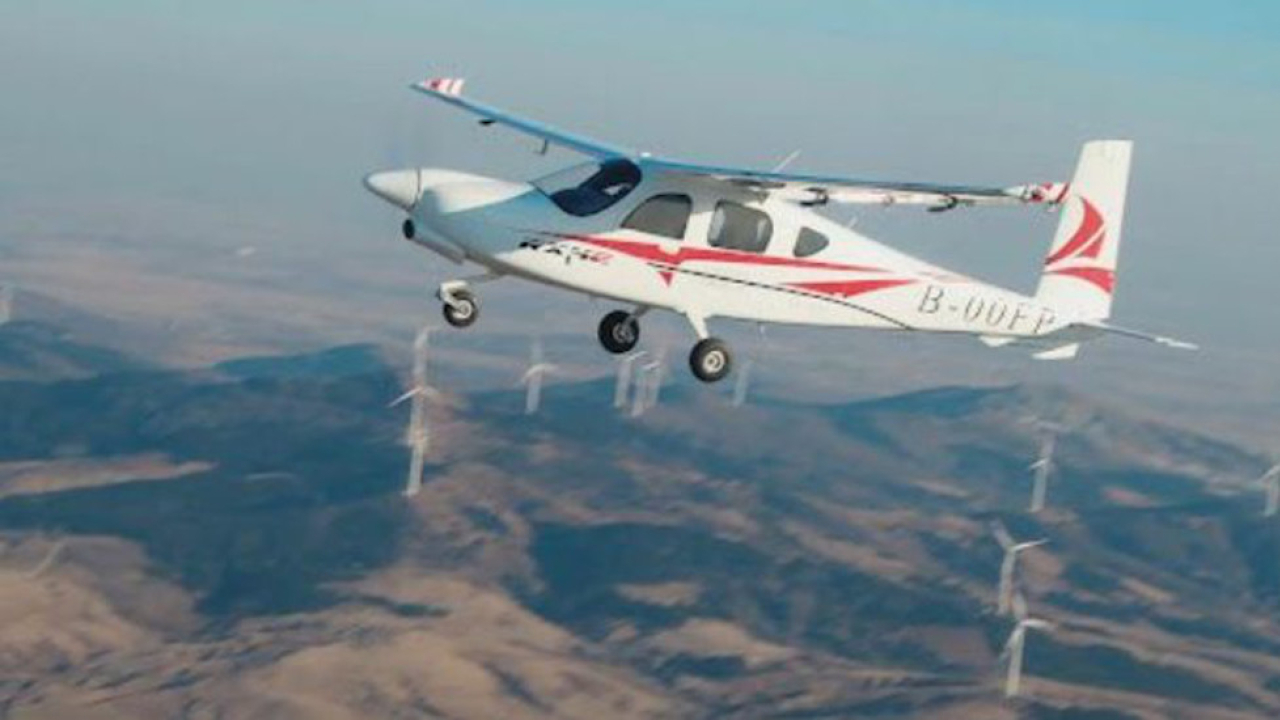IATA’s Walsh hails airline financial performance as a “major achievement”
IATA has upped its industry profitability projections for airlines in 2024 compared to its June and December 2023 forecasts.

IATA director general Willie Walsh delivering his report on the air transport industry at the association’s 80th AGM in Dubai on 3 June.
Image: IATA
Net profits are expected to reach $30.5 billion in 2024 (3.1% net profit margin), an improvement on 2023 net profits which are estimated to be $27.4 billion (3.0% net profit margin).
It is also an improvement on the $25.7 billion (2.7% net profit margin) forecast for 2024 profits that IATA released in December 2023.
“In a world of many and growing uncertainties, airlines continue to shore-up their profitability. The expected aggregate net profit of $30.5 billion in 2024 is a great achievement considering the recent deep pandemic losses,” said IATA Director General Willie Walsh delivering his report on the air transport industry at the association’s 80th AGM in Dubai on 3 June.
The net profit is welcome, but not a record, added Walsh, noting that the best margin the industry has ever achieved was a 5% net margin in 2015 and 2017.
There were several other records broken by the industry in 2024, stated Walsh. Total revenues are expected to reach $996 billion (+9.7%), total expenses are expected to reach $936 billion (+9.4%) and total traveller numbers are expected to reach 4.96 billion. All are record highs, he said.
“Strengthening airline profitability and growing financial resilience is important,” said Walsh. “Profitability enables investments in products to meet the needs of our customers and in the sustainability solutions we will need to achieve net zero carbon emissions by 2050.”
Walsh delivered several requests to various stakeholders in his address. “To improve profitability, resolving supply chain issues is of critical importance so we can deploy fleets efficiently to meet demand,” he said. “And relief from the parade of onerous regulation and ever-increasing tax proposals would also help.
“An emphasis on public policy measures that drive business competitiveness would be a win for the economy, for jobs, and for connectivity. It would also place us in a strong position to accelerate investments in sustainability,” said Walsh.
On the cargo side, IATA said revenues are expected to fall to $120 billion in 2024 (from $138 billion in 2023). Both are down sharply from the extraordinary peak of $210 billion in 2021, but it is above 2019 revenues, which were $101 billion and an improvement on the previous forecast of $111 billion (announced in December 2023).
Despite the strength of demand, cargo yields are expected to fall 17.5% in 2024 while remaining slightly above 2019 levels. This is a normalisation after extraordinary pandemic highs. A key factor in this is the significant belly capacity that entered the market in 2023 in tandem with the recovery of passenger travel.
In general, air cargo is in a period of correction following an exceptional year in 2021, explained IATA. Yields, capacity growth, the belly-dedicated freighter split, and other key metrics are moving from the extraordinary mid-pandemic situation towards a continuation of pre-pandemic trends and levels.
Stay up to date
Subscribe to the free Times Aerospace newsletter and receive the latest content every week. We'll never share your email address.


